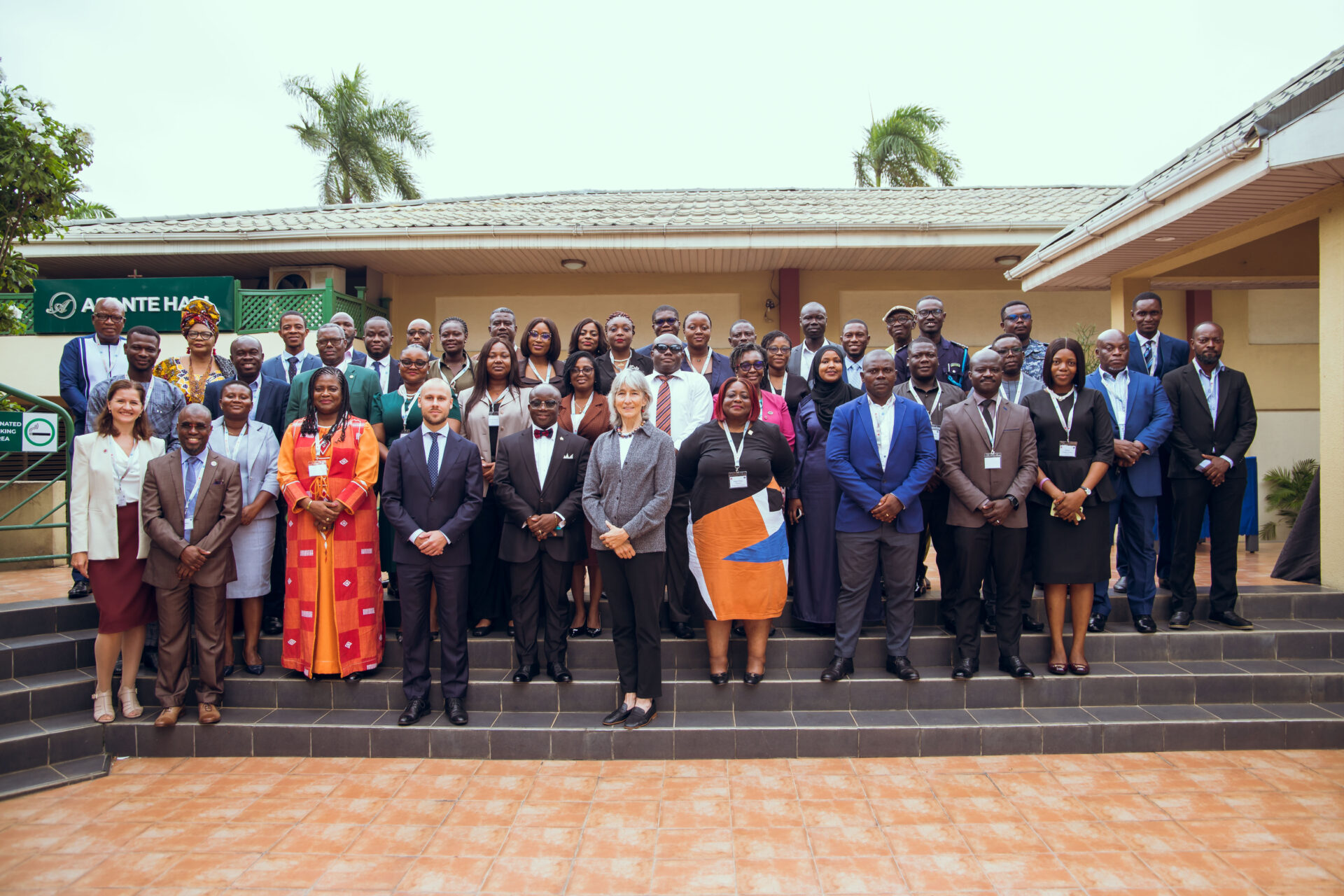
On 16-18 July 2024 the IIJ concluded a comprehensive training program for Ghanaian practitioners on Countering the Financing of Terrorism (CFT), bringing together a wide range of stakeholders from across the public and private sectors. The three-day event focused on good practices for effective investigation and prosecution of terrorist financing (TF) cases, Ghana's CFT priorities and gaps identified in recent evaluations and risk assessments, emerging threats, and preparations for the Third Round of Mutual Evaluations by the Inter-Governmental Action Group against Money Laundering in West Africa (GIABA), scheduled for 2025.
The IIJ developed the curriculum for the workshop in close consultation with Ghana’s Financial Intelligence Centre and focused on issues the FIC identified as high priority. The program brought together over 40 representatives from the judiciary, law enforcement, financial institutions, intelligence agencies, the private bar association and regulatory bodies, reflecting the multi-stakeholder collaboration approach that is crucial for Ghana's success in CFT. Given the current low level of TF risk in the country, the training focused mostly on preventive measures and strengthening Ghana’s regulatory and institutional framework.
A key takeaway from the training is the growing risk posed by new payment methods, particularly cryptocurrencies and mobile money. Ghana ranks high in Africa for total dollar value of transactions using cryptocurrency, and the lack of regulation in this sector creates vulnerabilities for terrorist financing. The training highlighted the urgent need for improved supervision and legislation in this rapidly evolving area.
Another area of focus was the protection of the non-profit sector from terrorist financing abuse. Recommendations included stricter due diligence procedures for registering non-profit organisations (NPOs) and more effective monitoring of donations. Participants also emphasized the importance of raising public awareness about terrorist financing risks, which are often underestimated in Ghana.
Focused sessions at the workshop addressed Designated Non-Financial Businesses and Professions (DNFBPs) and other high-risk sectors, which include real estate, mining industry, and legal professions. Discussions addressed the TF risks associated with these sectors and the importance of implementing effective compliance procedures, with a key focus on striking a balance between necessary regulations and avoiding undue burdens on private sector.
Overall, the training confirmed Ghana’s commitment to CFT, and the IIJ will keep working with Ghanaian authorities, as well as partner organisations – GIABA, UNODC, INTERPOL and GIZ – to support the country in this important work.
